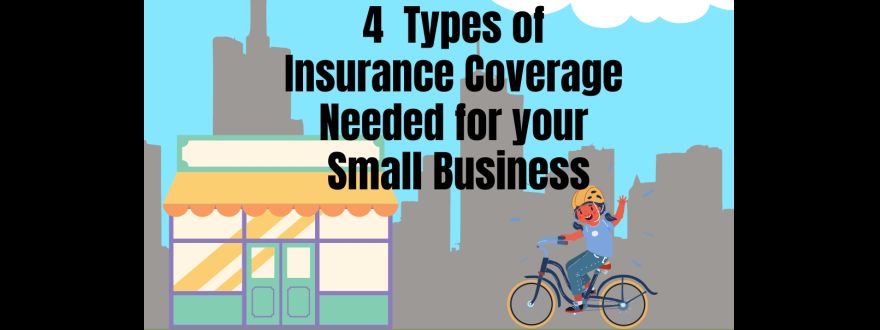
What Insurance is Essential for Growing Small Businesses
One of my favorite aspects of living in a small town with big amenities is the diversity of small businesses. Every day, locals call in to set up their insurance for new ventures. Their creativity, ambition, and entrepreneurial spirit are truly inspiring. Seeing these business owners embark on their journeys reminds me of when we take the training wheels off our kids' bikes. By the time you start your business, you’ve honed your skills and are ready to set off. Your hobby and side projects were the training wheels, and now it’s time to get into motion.
Just as we teach our kids about the importance of wearing a helmet and how to fall off a bike safely, insurance acts as your helmet when things go wrong in business. Whether you’re just starting to turn a hobby into a business or fine-tuning operations for hundreds of employees, your insurance needs will be different and complex.
Here are the four main types of insurance we recommend when starting a business:
1. General Liability or Professional Liability
General Liability insurance, also known as Business Liability Insurance, is the most common starting point for most businesses. This coverage deals with potential injuries or damages to other people or their property. It covers sudden and accidental injury or damage to something not in your care, custody, or control. For example, if a painter is working on a home and the gutters fall onto a car, the painter’s insurance could cover the car damages but not the gutters.
Professional Liability insurance covers errors and omissions in professional services, typically for professionals like engineers, realtors, directors & officers, accountants, insurance agents, lawyers, and doctors. It is specialized and tailored to your field, ensuring you get coverage suited to your needs.
We recommend starting with one million in coverage, which is usually the sweet spot for value.
2. Workers Compensation
Workers Compensation covers accidents that happen to you or your employees while on the job, including motor vehicle accidents, falls, cuts, and back strain. If you start as a solo operation, Workers Comp may seem unnecessary. However, depending on your trade and business setup (LLC, Corp, Sole Proprietor), you can exempt yourself and up to four co-owners with at least 10% share in the business to save on premiums. In Florida, non-construction industries don’t require Workers Compensation until you exceed three employees, but we recommend getting this coverage regardless of company size. The average Workers Compensation claim costs around $40,000, a substantial burden for small businesses. Workers Comp providers also offer workplace safety and training resources.
3. Life Insurance
Life Insurance and disability coverage are crucial for providing financial security for your family in case of death or an accident that prevents you from working. Large employers often provide this to employees, but once you are self-employed, it’s up to you to secure this protection. We recommend starting with a $1 million policy for business owners, though even a $50,000 policy can cover burial expenses.
4. Business Auto Insurance
If your vehicle is registered and owned by the business, switch to a Business Auto Policy. If you use a personal vehicle for work, add “business use” on your personal policy. Vehicles with business logos, job materials, or carrying employees or clients should be on a business policy.
Conclusion
These coverages act as padding for the pitfalls of business ownership, helping you navigate the path to success. As you master the startup phase, your business will require more specialized coverage. Like upgrading from a bike to an electric bike, your business will face new risks but also gain greater speed and momentum. Middle and large-sized businesses need additional sets of coverages to ensure long-term growth and efficiency.
Stay open to your risks, control what you can, and transfer the rest to insurance companies to keep your business moving forward confidently.
Informational statements regarding insurance coverage are for general description purposes only. These statements do not amend, modify or supplement any insurance policy. Consult the actual policy or your agent for details regarding terms, conditions, coverage, exclusions, products, services and programs which may be available to you. Your eligibility for particular products and services is subject to the final determination of underwriting qualifications and acceptance by the insurance underwriting company providing such products or services. This website does not make any representations that coverage does or does not exist for any particular claim or loss, or type of claim or loss, under any policy. Whether coverage exists or does not exist for any particular claim or loss under any policy depends on the facts and circumstances involved in the claim or loss and all applicable policy wording.







